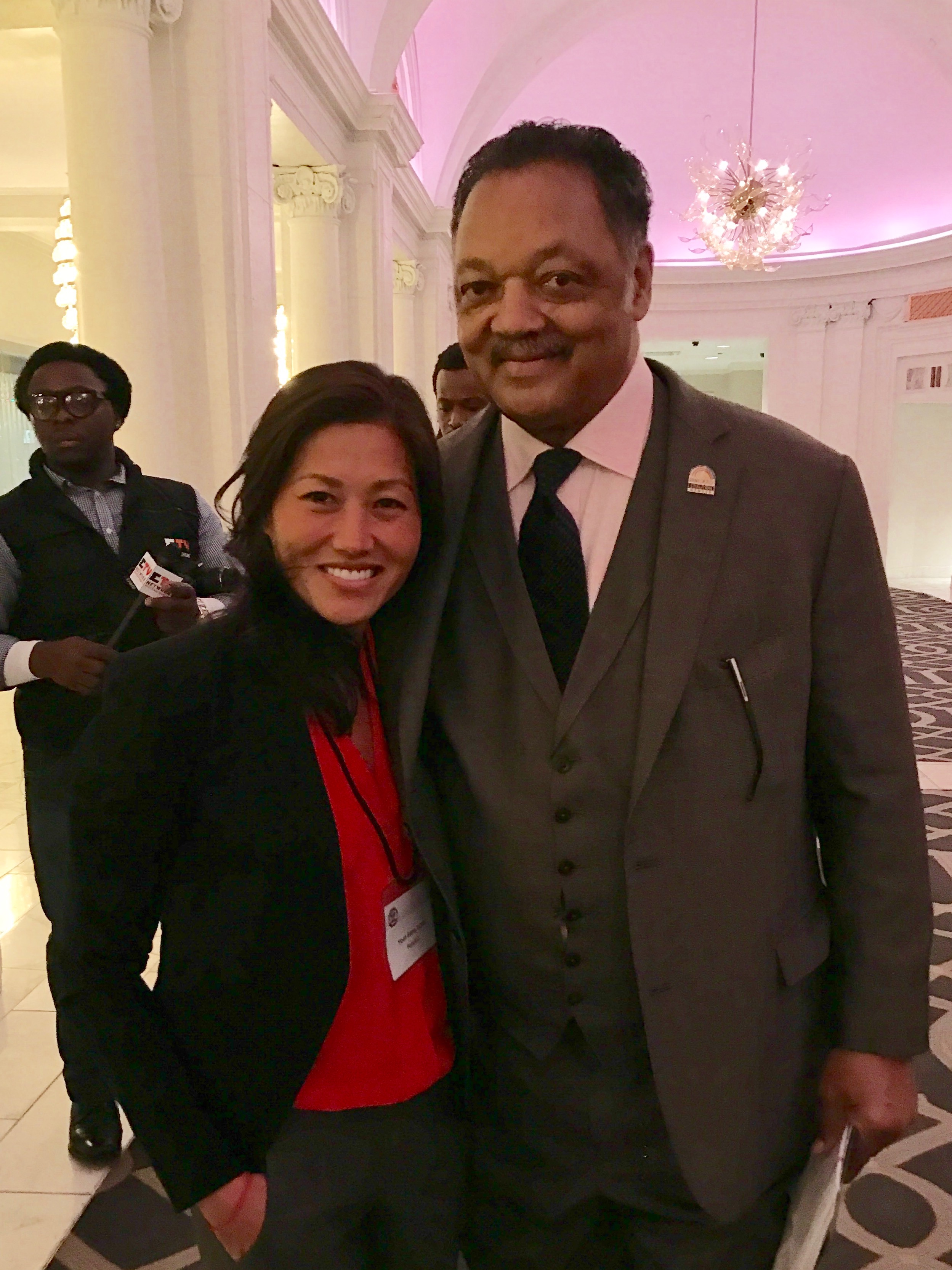
MINDFUL IN THE CITY
Thoughts
&
Musings
20th Annual Wall Street Project Economic Summit - Healthcare and Technology
When we talk about healthcare, rather than focus on cost and disease, we need to target prevention. I don’t think it’s a surprise to anyone here when I say to you that a healthy body is directly correlated to healthy behaviors which is strongly influenced by the communities we connect with.
The quality of our connections has tremendous impact on our physical and mental health, and like it our not, technology has changed the way we relate to one another. There are approximately 7 billion users on the internet now. Presently, more than half of you, through the next 5-15 minutes of this talk, will notice yourself drifting in and out. You will find yourself mindlessly reaching for your mobile device to check your email or your Facebook feed.
When we talk about healthcare, rather than focus on cost and disease, we need to target prevention. I don’t think it’s a surprise to anyone here when I say to you that a healthy body is directly correlated to healthy behaviors which is strongly influenced by the communities we connect with.
The quality of our connections has tremendous impact on our physical and mental health, and like it our not, technology has changed the way we relate to one another. There are approximately 7 billion users on the internet now. In this moment, more than half of you, through the next 5-15 minutes of this talk, will notice yourself drifting in and out. You will find yourself mindlessly reaching for your mobile device to check your email or your Facebook feed.
Yoon Kane, Founder and Director of Mindful.NYC and CEO of everbliss, Inc. presenting at the Wall Street Economic Summit with Dr. Arnold, Director of BCBS & Dr. Rivlin, Former Director of the White House Office of Management and Budget
With a click, we escape disconnection and isolation and connect with like-minded individuals and online communities on any subject we want. The source of power is the promise of instant gratification and connectivity. There are downsides to this, and we can lament about the evils of the internet, but it’s just a tool. Like any tool, it can be used for constructive or destructive means. A useful questions ask ourselves as leaders and advocates of affordable healthcare is how can we target and mine online communities for for positive change?
The current healthcare system is difficult to sustain, it can’t provide services because of limited funding and other complications. Majority of my practice consists of out-of-pocket paying clients, and not by choice. I get hundreds of inquiries looking for in-network providers and most of the insurance plans limit sessions to 12-20 visits.
Mental health continues to be a huge untapped market burdened with limitations and stigma:
-An estimated 61.5 million Americans aged 18 and older experience some form of mental illness in a given year (NIMH)
-Around 9.2 million adults have co-occuring mental health and addiction disorders (Center for Behavioral Health statistics and Quality 2012)
-About 50% of adolescents aged 13-18 have experienced at least one mental disorder in their lifetime (Merikangas et al, 2010)
The internet has already found solutions to the problem in mental health. Online communities for mental health care already exist. For example: Talkspace, 7 cups of tea, my company, everbliss to name a few. These platforms are all geared toward motivating people to talk about their problems in a safe digital space.
These online mental health Communities have replaced clergy, family and community centers. The space we share & join others going through similar issues is now virtual. There are many reason why people, especially young people are flocking to online communities. Millennials are primed from childhood and habituated into relating online from the start. Habit is a powerful behavioral phenomena. Additionally, virtual platforms target the main three factors of motivation: Autonomy, mastery and social support.
Individuals become healthier when they are given the choices and provided opportunities to experience success. They are more likely to engage in successful behaviors when they are socially acknowledged and supported by their peers. Basically, we need other people in order to live well. These online communities have tapped into a gold mine by addressing the three tenets of motivation.
Outside of the virtual world, my physical practice has also evolved due to the influence and innovations in technology. I work more over the internet, using video conferencing and email. My associates and I text and conduct video meetings. In today’s fast -paced world, we rarely need to make physical contact to run a business.
This poses new challenges for negotiating boundaries around social media with my clients: Should I accept the Linked in request? What about a snapchat? How do I make these boundaries therapeutic? Should I have email office hours? Am I providing a disservice to this client by seeing her on video sessions instead of in person? These are common dilemmas for healthcare providers using technology. There are also real limitations - one main issue being that technology is ever evolving and moving so fast, it’s hard for our working models to keep up.
Ever since email arrived into our lives, it’s has forever changed our perspective on how we manage our most valued resource- Time. We don’t wait for anything anymore. We have outsourced everything. Technology tells us when it’s our friends birthday, where they're going on vacation, what they are reading, who is available to date, how much we are sleeping and how many steps we are taking.
The real questions is — how are these tools helping society become healthier? are these solutions helping us use healthcare more effectively? In my opinion, there's a potential for us to drown in pool of information overflow. Because of the comfortable solutions provided by innovation, we’ve become passive and disempowered in our ability to influence it. What would happen if we were to wake up and use these tools to become actively engaged with others? At the end of the day, how does counting your steps actually help you become a healthier person?
What continues to be missing in mainstream healthcare now starting to benefit from tech is personalization and reliability. I grew up in a southern town with immigrant parents who did not speak english very well. They had a huge distrust for what they saw as the “white system” so they just didn’t go to doctors appointments. Thank goodness we didn’t have big medical issues, but it would’ve helped to get vaccines, some antibiotics, and regular check ups. Those were the painful days before internet reviews, online forums and google translation. Now, my parents are always on their iPads. It has replaced me as their new translator for all their medical appointments and source of entertainment and connection. I can't get them away from it.
The marriage between healthcare and technology is the meeting point for the birth of opportunity. Technology is not a silver bullet but it’s a big step in the right direction. The exciting part is that it really does solve few of the biggest problems in healthcare. To summarize, Here are 3 main benefits:
Cost: With modern day tech, we can provide services in a safe and secure way with minimal overhead, so practitioners can provide reasonable services at reasonable fees.
Access: Mental and physical care is difficult for people who live remotely or don't have access to transportation or their job simply doesn’t allow them to take the time off.
Accountability: Less cancellations due to transportation, weather and sickness. Better quality of service that can be tracked by data for measurable outcomes and success rates.
We are at a very uncertain time in our healthcare system. Our minds and bodies, our relationships and the community we connect with are the most powerful source of change. Each of us have, in our hands, the tool to build a healthier and brighter future.
Bonding moment with @RevJJackson @WallStreetProj while presenting on evolution of healthcare at the 20th Annual Wall Street Summit
How to Mindfully Fire Toxic Friends and Loved Ones: A Shrink’s Guide to Setting Boundaries
As a Manhattan-based psychotherapist working with a high functioning adult population, I am always surprised to encounter a repetitive theme in my office. People no matter how smart, successful and savvy, find it impossible to break up with their toxic jobs, relationships, and friends. Clients repeatedly walk into my practice frustrated with their life-draining, dysfunctional relationships or jobs.
Post Election COGPS 2016 Presentation on Women, Sex + Power
On November 13th, I was invited to Colorado to present to a training group of therapists at the COGPS annual conference at the University of Colorado Anschutz Medical Campus. The topic was Women, Sex + Power. It was within days after the 2016 election. I was uncertain about what to expect from the audience given the tense political climate. I was blown away by the level of honesty, intelligence and courage demonstrated by the participants. The synergy of openness and reflective insight inspired and re-energized my belief in the healing power of group.
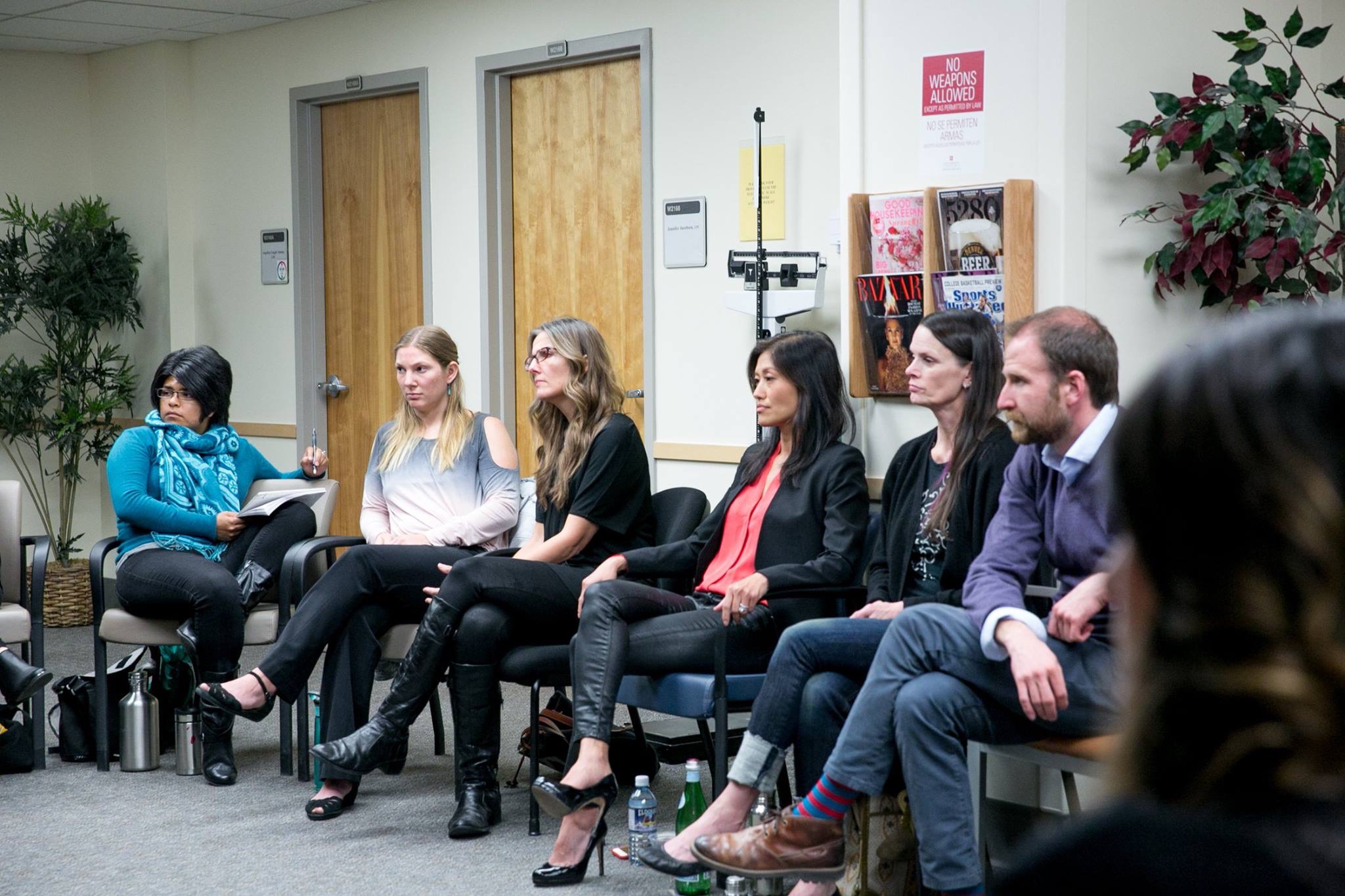
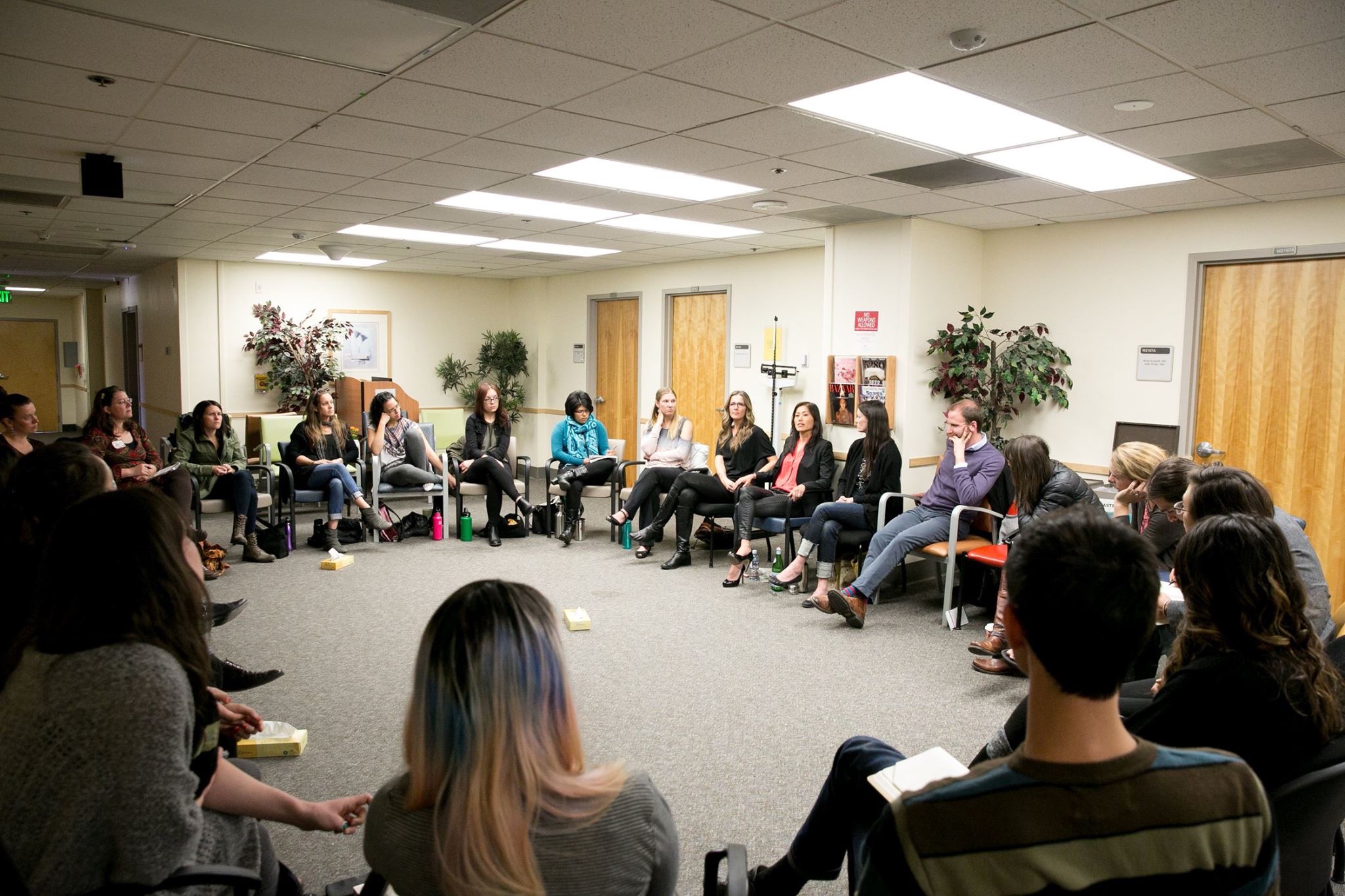
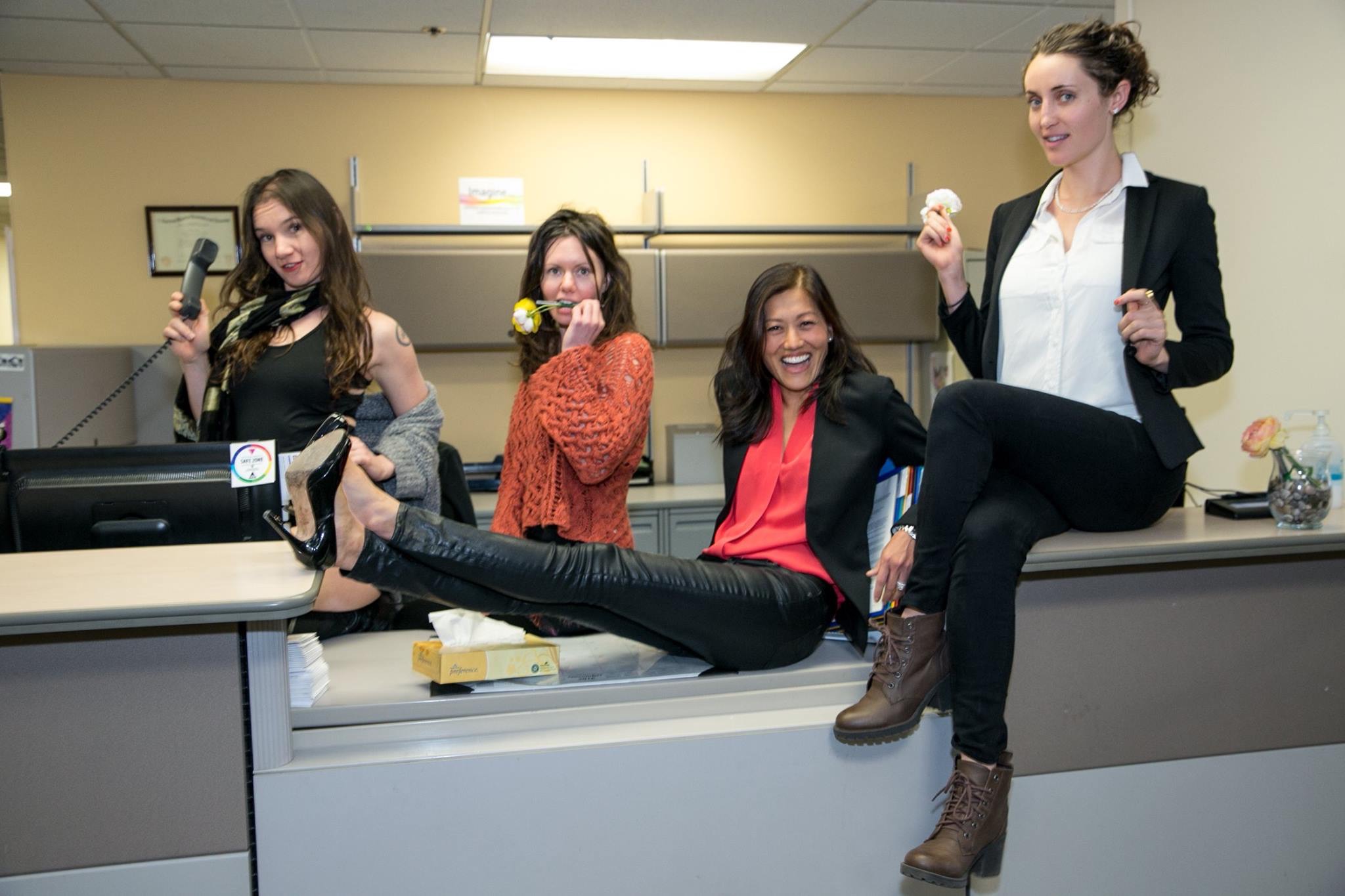
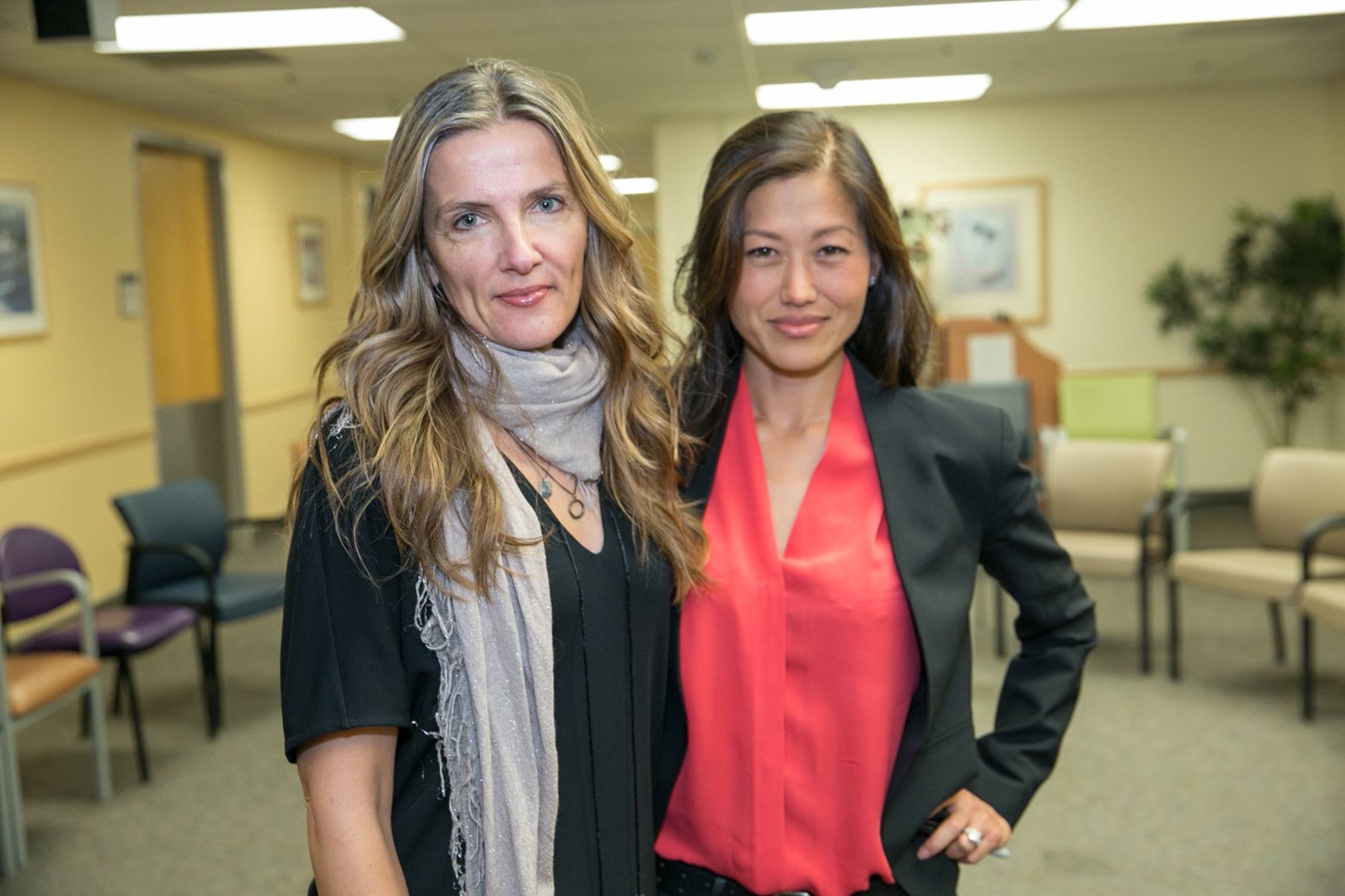
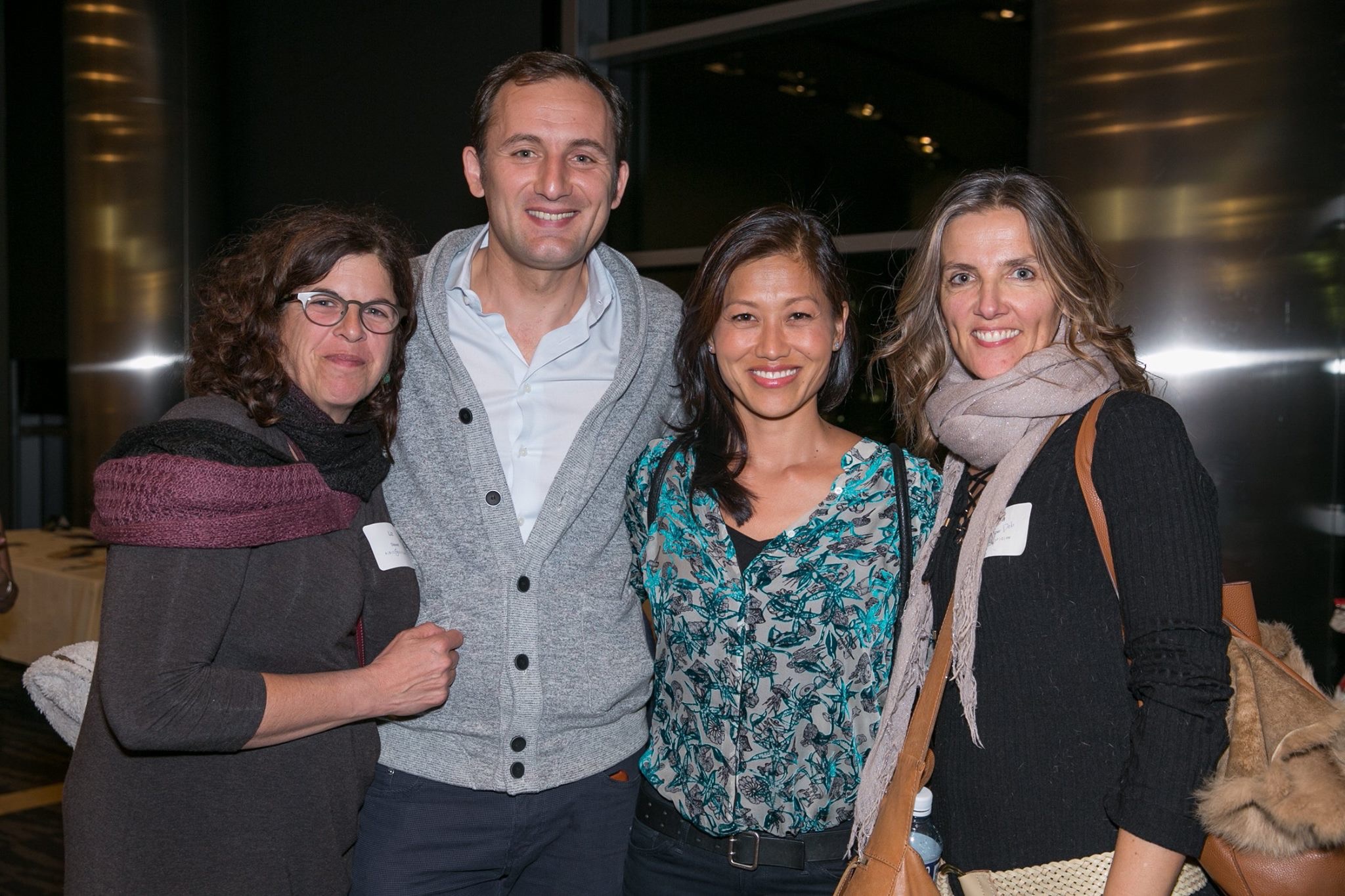
How to handle anger
We all experience anger. Anger is an important emotion to learn to understand. Yoon Kane, a Yale-trained psychotherapist and founder of Mindful Psychotherapy, offers useful tips on how to better handle your anger and use it constructively.
Three key ingredients of an apology
Why is it so hard to just forgive and forget? According to Psychotherapist Yoon Kane, there are 3 essential ingredients of an apology.
Are You Work-life Balanced?
Having a work life balance is all abuzz these days. Juggling the demands of everyday life can sometimes feel overwhelming. Work-life balance begins from a look within. It is the art of living flexibly. Work-life flexibility is a skill we can all learn to develop. Yoon Kane, a Yale-trained psychotherapist and founder of Mindful Psychotherapy talks about the importance of living a balanced lifestyle.
How to be a badass in life
I recently posted a picture of myself to announce my new business and website. It wasn't the typical therapy photo of a thoughtful pose, in a non-threatening office, with my head slightly cocked in an ”I’m here to listen and not judge" angle. It was a full body shot of me in my usual sheath dress work attire, hips swayed to one side, with the gritty streets of manhattan as the backdrop. There was nothing therapeutic about the image. I chose this photo because it represents who I am today: A strong, confident woman, comfortable with myself. There was a time in my life I wouldn't have posted a picture like this in a million years. I spent most of my life trying to avoid the limelight by hiding in my therapy office humbly offering my over-educated and well-analyzed interpretation of the world.
I don't recall a pivotal moment when my perspective shifted. There wasn't a big "aha!" lightbulb switch that made it all make sense. Reflecting back, it was a process that unfolded over time. It took lot of hard work and self discovery to get to where I am today, to feel comfortable in my body and own my power not only as a successful woman but a successful asian woman. Growing up in a small southern town, I didn’t have many positive role models who helped to shape my view of myself as a unique individual, perfect and good exactly as I am. From a child/teen point of view, I was the ugly duckling that looked nothing like the bevy of swans I was surrounded by. I struggled with an unrealistic view of what I looked like and did not want to accept the fact that I was looked physically different from my peers. I searched in magazines, TV, school. Nothing. I felt alone with my struggles and failures at trying to fit in and realized my attempts only further disconnected me from my true self. By caring too much about fitting in and pleasing others instead myself, I spent most of my energy worrying instead of doing. It was only later in life, through good friendships, mentors and therapy groups, I was exposed to women and men who clearly took the steps to find their inner badasses and generously shared their vulnerabilities with me. In turn, I took the risk of opening up about my own struggles, and finally found connection with people whom I could trust and relate to.
Many mistakenly believe that body image issues are only weight related. Body image is about to how people see themselves. Distorted body image is an unrealistic view of how you see your physical body. Like eating disorders, it is seen most commonly in women, but it's important to know that many men also suffer from the disorder. The way you begin forming your perceptions of your body’s attractiveness, acceptability and functionality starts in early childhood. Body image issues stems from the messages we receive from the outside about how we “should” or “should not” look. In my therapy practice, I’ve treated the most beautiful and successful men and women debilitated from body image issues. It’s about time we break the silence and begin facing our fears, taking ownership of what makes us unique, and bring out the inner badass in all of us.
The most important aspect to remember about being a badass is to accept all parts of yourself. If you feel good about something (your athleticism, writing, art) take the risk of putting yourself out there and allow the opinions, envy, aggression, judgement of others to pass through you like a light spring shower on a sunny day. Remember, to be a BA, you need to consider the following:
- What other people think of you and say about you is really none of your business.
- Everyone will have something negative to say unless they've done the work of owning their inner badasses.
- The true BA will be too busy living life and getting things done. Besides, people's reactions say more about themselves than about you.
- If you want good feedback, surround yourself with people you truly respect, the BAs in your life who have your back. Join a group. Groups can be a powerful tool to help you test out new boundaries and learn to accept all aspects of yourself and others.
The true badass knows that at the end of the day, you can’t expect others to respect you if you don’t respect yourself first.
I recently posted a picture of myself to announce my new business and website. It wasn't the typical therapy photo of a thoughtful pose, in a non-threatening office, with my head slightly cocked in an ”I’m here to listen and not judge" angle. It was a full body shot of me in my usual sheath dress work attire, hips swayed to one side, with the gritty streets of manhattan as the backdrop. There was nothing therapeutic about the image. I chose this photo because it represents who I am today: A strong, confident woman, comfortable with myself. There was a time in my life I wouldn't have posted a picture like this in a million years. I spent most of my life trying to avoid the limelight by hiding in my therapy office humbly offering my over-educated and well-analyzed interpretation of the world.
I don't recall a pivotal moment when my perspective shifted. There wasn't a big "aha!" lightbulb switch that made it all make sense. Reflecting back, it was a process that unfolded over time. It took lot of hard work and self discovery to get to where I am today, to feel comfortable in my body and own my power not only as a successful woman but a successful asian woman. Growing up in a small southern town, I didn’t have many positive role models who helped to shape my view of myself as a unique individual, perfect and good exactly as I am. From a child/teen point of view, I was the ugly duckling that looked nothing like the bevy of swans I was surrounded by. I struggled with an unrealistic view of what I looked like and did not want to accept the fact that I was looked physically different from my peers. I searched in magazines, TV, school. Nothing. I felt alone with my struggles and failures at trying to fit in and realized my attempts only further disconnected me from my true self. By caring too much about fitting in and pleasing others instead myself, I spent most of my energy worrying instead of doing. It was only later in life, through good friendships, mentors and therapy groups, I was exposed to women and men who clearly took the steps to find their inner badasses and generously shared their vulnerabilities with me. In turn, I took the risk of opening up about my own struggles, and finally found connection with people whom I could trust and relate to.
Many mistakenly believe that body image issues are only weight related. Body image is about to how people see themselves. Distorted body image is an unrealistic view of how you see your physical body. Like eating disorders, it is seen most commonly in women, but it's important to know that many men also suffer from the disorder. The way you begin forming your perceptions of your body’s attractiveness, acceptability and functionality starts in early childhood. Body image issues stems from the messages we receive from the outside about how we “should” or “should not” look. In my therapy practice, I’ve treated the most beautiful and successful men and women debilitated from body image issues. It’s about time we break the silence and begin facing our fears, taking ownership of what makes us unique, and bring out the inner badass in all of us.
The most important aspect to remember about being a badass is to accept all parts of yourself. If you feel good about something (your athleticism, writing, art) take the risk of putting yourself out there and allow the opinions, envy, aggression, judgement of others to pass through you like a light spring shower on a sunny day. Remember, to be a BA, you need to consider the following:
- What other people think of you and say about you is really none of your business.
- Everyone will have something negative to say unless they've done the work of owning their inner badasses.
- The true BA will be too busy living life and getting things done. Besides, people's reactions say more about themselves than about you.
- If you want good feedback, surround yourself with people you truly respect, the BAs in your life who have your back. Join a group. Groups can be a powerful tool to help you test out new boundaries and learn to accept all aspects of yourself and others.
The true badass knows that at the end of the day, you can’t expect others to respect you if you don’t respect yourself first.
Photo Credit: Romer Pedron Photography
How to spot toxic & abusive people
My expertise in handling emotionally and physically toxic, manipulative people started as a psychotherapist evaluating, testifying, and treating sex offenders and their victims. The most extreme case was when I was asked by the FBI to testify as an expert witness in federal court on behalf of a child victim of sexual abuse by a high profile government official. I had to convince the grand jury and educate them about patterns of abuse and the impact of trauma on victims. I find it helpful to explain the stages of abuse because most people don't recognize the subtleties of abusive behavior - like a frog in slow boiling water - by the time they realize it, it's too late. You can read hundreds of books, but nothing beats gut instinct and experience. Here are the three pronged stages of the abuse cycle:
The set up:
The abuser typically presents as a normal person with a lot of shine: charming, helpful and flattering. You immediately feel "special." Ask yourself, how does this person who doesn't know you make you feel this good about yourself? If it doesn't make logical sense, its a red flag. The set up stage is when abusers "test" your boundaries to see how vulnerable you are to their tactics. They will do things intentionally to hurt you then ask for your forgiveness. If you buy into it, they'll keep doing more and raising the ante.
Maintenance:
Once they have you hooked, a set of patterns are introduced to condition you into a repetitive cycle. Their over reactions and under reactions are set up to condition your behaviors. You have become their narcissistic supply. They will make sure your routines and schedules line up with their agenda. The temper tantrums and cold shoulder is a calculated attempt to control your routines. The nonsensical over reactions and fights have the intention of always keeping you destabilized so they have the upper hand.
Isolation:
This is a strategy to make sure you don't have friends or family who will raise concerns. At this stage, you'll begin to wonder why you feel so depressed and unhappy. The abuser has isolated you to the point you don't have friends who you can confide in to discuss your fears. Additionally, they will have brainwashed you into thinking everything is your fault and guilted you into staying in the relationship. Here are 3 examples of guilt shaming:
1. I'm a victim. Why are you doing this to me?
2. You are a bad person and I will tell everyone the truth (this is when they will start a public shaming campaign-calling friends and family with lies)
3. You have the potential to be so perfect and wonderful.
Solution:
You need a support network. Even though it may feel scary and shameful, it's important to tell close trusted friends and professionals what's been going on. The only way to protect yourself is to disengage from the toxic person and to have the network of support to keep your boundaries firm. Remember, you give up your power when you keep silent. This is especially difficult for men suffering from emotional abuse by women. Men may feel they're being weak by admitting they are being abused by a female. Abusers are equal opportunity predators and do not discriminate against gender, race or age, so don't be afraid of speaking up!
Helpful books on this topic:
-In sheep's clothing by George Simon Jr
-The emotional vampire survival guide by Albert Bernstein
* Disclaimer: This blog is written for the general public. If you need more information or feel you are in danger, please contact your nearest law enforcement or contact a professional.
What's stopping you? Explore the source of your resistance
Today is a serious beginning.
I made a date with my friend Hannah to write for an hour. Hannah was the right person to handle me. She has a killer corporate lawyer part that wrangles my resistance and holds me accountable.
Panic resounds inside my head. Oh NO, I haven’t found a caterer for tonight’s party; Oh no, I NEED to get a run in; Oh No, I NEED to vacuum the cat hair from under my bed!
I text Hannah: “Hey, wanna go for a run instead? Hey, I’m freaking out about finding a caterer for tonights party! Hey, are you too busy to meet? In her firm but sweet way, replies, “I’ll see you at 12:00”
f*&%, the resistant donkey part of me says inside my head.I’m screwed.
I examine my resistance. For the first time, I am curious about it. It just seems so… hysterical. What’s all the fuss and drama about? More quiet voices lurk beneath the hysterical melodrama, screeching like nails on chalkboard — What makes you think you can write? Who do you think you are? What are you going to DO with an hour of writing? Why don’t you do something more productive? Why do you spend time doing nonsense? I listen carefully and realize those are voices that I heard growing up with my Korean family.
There are moments when your own hypocrisy shows up and slaps you on your own doorstep. It amazes me after all this time, even as a mature, professional adult, my parents voices continue to dictate my decisions. Me, a brilliant therapist who so cleverly excises her patient’s resistance day in and day out. I wonder about the parts of me,who grew up absorbing the messages parents and other adults transmitted consciously and unconsciously. I leads me to examine the anxious panic when I engage in the “taboo” things that go against my parents beliefs about how I should conduct my life. Something as minor as taking an hour of my time to do something creative wreaks havoc in my internal belief system.
What’s so BAD about doing something different than what I know? Why is i transgressive to do things that may prove my parents wrong or expose them as a fearful, risk adverse mortal beings? When I think back on where these beliefs came from, I recall the indignant rage I felt as an adolescent. “My parents are SO unfair. They have no idea what REAL life is.”
I am now about the same age as my parents when I was that teen. I too have some fears about the unknown…and the realization that in my lifetime, I may never reach the possibilities that I fantasized about so easily as a child. This is the real reason the voices are so incessant. Parts of me mimic my parents and unconsciously sabotage my success in order to protect me from disappointment and failure.
The real tragedy in this is that the very fear they perpetuated to avoid the pain is what kept them from feeling the joy. What they were afraid allow themselves to know, is that however brief it may be, to enjoy a moment of time creating, loving and feeling joy along with sadness, disappointment and loss are just part of a larger tapestry of life. My present selfcan impart this wisdom to my fearful internal voices: Isn’t it wonderful that you are willing to take the time to create and enjoy things in your life. The other stuff – disappointment, loss, and fear are just part of living.
Feel into all of it. Spend time creating something out of it. Take the time to rediscover your own voice, again and again. It’s the only way to keep your inner spirit alive.
Women, Sex + Power training group
Through discussions, Dr. Kasper and I realized there was a lack of training opportunities for female therapists to explore and understand their own reactions and experiences with desire, sex, power and control. Using our experience, training & research, we found that if therapists increase their own understanding and comfort with these feelings, they will be more effective in helping clients do the same. We created the Women, Sex + Power collaboration to address this need. We co-led a workshop at the 2016 American Group Psychotherapy Association's (AGPA) annual conference on Women, Sex + Power which was incredibly well attended and showed us how hungry women are to explore this topic. We have been invited to conduct the workshop again at the 2017 AGPA annual conference in New York.
"Yoon + Laura were excellent role models for powerful and kind women leaders." - AGPA 2016 Workshop Participant
Women, Sex & Power©: The Madonna, The Whore and The Female Therapist is a collaboration between Laura B. Kasper, Ph.D., CGP in San Francisco and Yoon Kane, LCSW, CGP in New York. Women, Sex & Power training includes both in-person 12-week experiential training groups in San Francisco & New York (led by Laura and Yoon respectively), and a co-led online 12-week experiential video training group. For more information about training groups please contact either Laura B. Kasper, Ph.D. (drlaurakasper@me.com) or Yoon Kane, LCSW (yktherapy@gmail.com)



